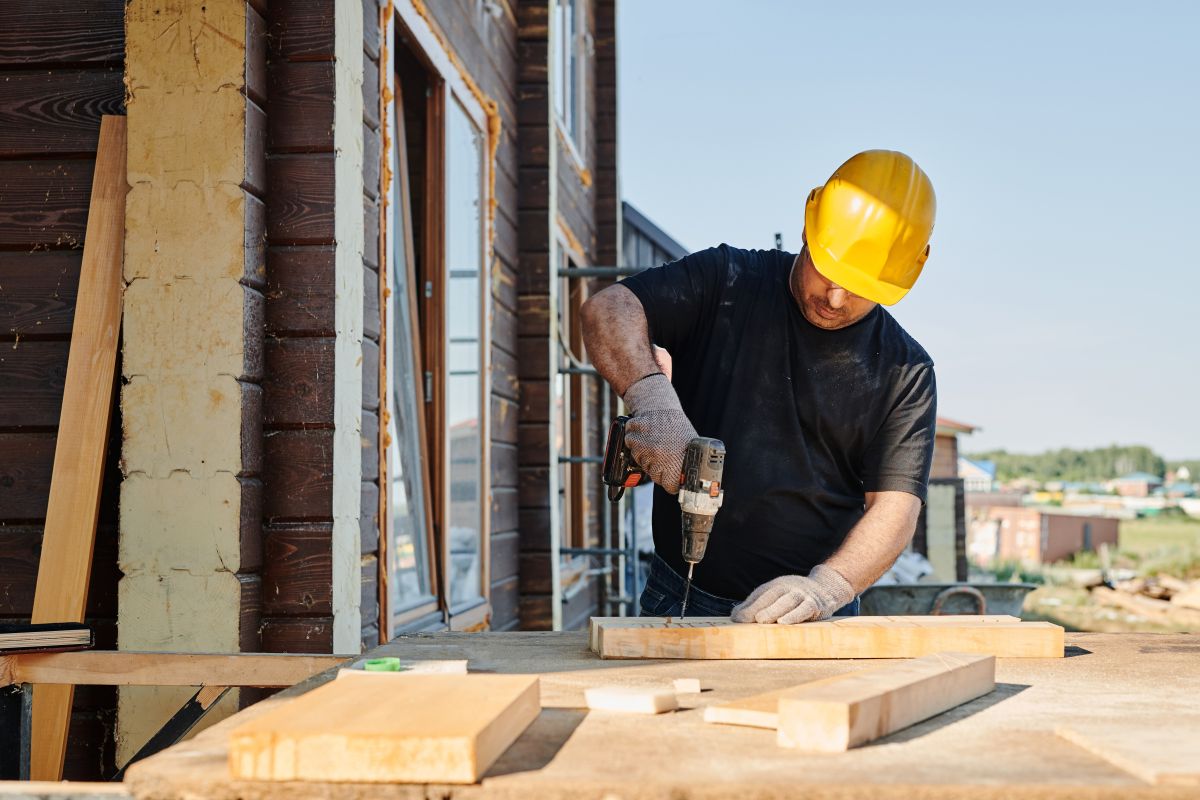A homeowners association (HOA) is indeed a non-profit organisation that oversees the upkeep of a specific neighbourhood or housing development. An HOA's primary responsibility is to uphold community aesthetics, safety, and compliance with rules and regulations.
For example, an HOA might oversee the upkeep of a community's parks, playgrounds, & swimming pools, in addition to enforcing regulations regarding landscaping and exterior home improvements.
Homeowners' association dues are the primary source of revenue, and the members elect a director's committee to oversee the association's operations.
The board oversees community-wide matters like rule enforcement, conflict mediation, and decision-making.
The HOA's contributions to the subdivision's property values and the quality of life for its residents are substantial.
How Can A HOA Make Rules And Regulations?
It's in your best interest to demand a copy of the HOA's governing documents, including the community's covenants, circumstances, and restrictions (CC&Rs). The documents will provide comprehensive details on community regulations and rules.
The following are common areas where homeowners' associations set rules and guidelines:
- Any alterations you make to your home's structure
- Lawn decorations and seasonal displays are subject to regulations.
- Prerequisites for Housekeeping
- Noise-Complaint Procedures and Policies
- Who can live in the house, and how many at a time?
- Instructions for parking
- Exactly how many and what breeds of pets are permitted?
- Garbage and recycling collection regulations and timetables
- The possibility of renting out your home for a limited time (such as on Airbnb)

What Obligations Does The HOA Have To Homeowners?
A lot is expected from you as a homeowner inside an HOA community. But exactly what duties fall upon the HOA? They wouldn't ask for your money without promising something in return, after all.
Let's look closer at the responsibilities of your HOA and how they can help you.
Keep Common Areas In Good Condition.
The HOA is in charge of general upkeep and repairs to shared spaces. They can repair and improve systems for increased security and aesthetic appeal.
It is not the responsibility of homeowners to maintain the fitness centre's HVAC or replace broken windows.
A member of the HOA board will need to make some price comparisons and estimate gathering with local repair businesses. The board treasurer is usually in charge of this, as they oversee the community's financial records.
In addition to maintaining the common areas' landscaping, the HOA is responsible for clearing the paths, sidewalks, and entrances of any litter.
Conduct Investigations And Serve As A Mediator.
Conflicts are inevitable in any group of people, regardless of their size. The burden of determining who is at fault in the conflict rests on the shoulders of the HOA's members.
Let's say somebody knocks on your door late at night to complain about your noisy neighbours. Perhaps they've asked the neighbours to turn down the volume several times but to no avail.
In such a case, the HOA might step in. They'll meet with all parties involved to discuss the situation and decide whether or not the complaint has merit. If so, the offender will receive a warning or a monetary penalty for breaking one of the established norms.
Managing The Community's Finances
We noted that the treasurer keeps the books and pays outside workers like contractors and repairmen, but their responsibilities go far beyond that. They should also check up on slackers and remind those who haven't paid in a while to do so.
The HOA treasurer must also prepare a budget to cover the cost of utilities, maintenance, and insurance, as well as any applicable taxes. In case of complex emergencies, such as the need to replace the roof of the community centre, money will be set aside inside a reserve fund.
Approval Or Modification Of CC&RS
To protect the community's values, safety, and aesthetics, the HOA drafted the CC&Rs. All members of a community are expected to abide by the established regulations, which may vary from one location to another.
Make sure you read the rules so you know the proper procedure to follow if you want to petition this same HOA board because you think the rules seem to be unfair or because you are interested in having a new rule implemented.

Hold Discussions, Capture Communications, And Compile Other Paperwork
We've spent a lot of time discussing the role of the treasurer, but other board members also play important parts.
The board president is responsible for calling meetings to order, outlining the agenda, and keeping everyone respectful and focused. They should be familiar with the CC&Rs and know the rules inside and out.
They also request votes, report the results, and request that speakers be given time to speak.
The vice president of the board acts in many of the president's roles. They keep things running smoothly and make sure meetings stay on track. If the president cannot serve, the vice president is prepared to do so.
The board secretary should keep track of meeting minutes and other official HOA documentation. They keep records up to date and ensure everyone in the community can access them. The secretary must also keep track of court filing deadlines and maintain order in the company's leases and contracts.
Each state regulates the frequency of HOA elections. If they meet the requirements, any person from the neighbourhood could indeed run for a seat on the committee. Community members have the option of voting anonymously in person at a meeting, by mail, or through a proxy.
What Are Homeowners' Associations' Rights And Powers?
The followings are the privileges and authority granted to an association:
- Adopt and modify the Articles of Association, Bylaws, Rules, and Regulations, subject to discussion and the approval of the simple majority of all members, by applicable Laws and Regulations;
- Association business includes but is not limited to, initiating, defending, and intervening in litigation and institutional proceedings involving issues relevant to the Affiliation and, indeed, the Subdivision/Village overall (but not including matters that are not the Association's purview).
- Establish rules for the use, maintenance, repair, replacement, & modification of common areas, as well as the addition of new improvements to those areas, so long as those rules do not conflict with the authorised subdivision plan;
- Preserve privacy, tranquilly, internal security, safety, and traffic order by controlling who can use and who must be avoided on subdivision/village roads; this can be done with public consultations, compliance with existing laws and regulations, permission from relevant government agencies or units, and the execution of suitable and required memoranda of agreement.
- To ensure the smooth running of the association, the board of directors may hire, fire, or contract trying to manage agents and other employees, agents, and independent contractors.
- Acquire, hold, encumber, and convey in its title any right, title, or involvement in real or personal property, subject to consultation as well as the approval of such a simple majority of such Association's members; provided, however, that such approval of such a simple majority of both the Association's members shall not even be required for such acquisition, holding, encumbrance, and method of delivery of personal properties in an amount not surpassing ten per cent (10%) of an Association's cash holdings for its use.
- provide affordable water services to the community and, at its discretion and following consultation with the membership at large, manage and operate the subdivision's waterworks system;
- the right to petition for and then consent to the vacation of streets and alleys, and the right to grant easements, leases, concessions, and authority to use common areas, all upon consultation, provided that no such grant shall extend to access roads, main interconnecting roads, alleys, or sidewalks within the subdivision;
- Charge or collect, subject to the limitations and conditions imposed by law, Board regulations, and the Association's bylaws, reasonable fees for the use of common areas, facilities, and services;
- Allowing schools, hospitals, markets, grocery stores, and other establishments that will inevitably change the character of the subdivision/village in terms of traffic generation and opening the area to outsiders, potentially jeopardising the privacy, security, safety, and tranquilly of its residents, subject to consultation and with the approval of a simple majority of the association members. Note, however, that sari-sari stores, home industries, and similar local business enterprises within the subdivision/village designated as socialised housing do not require such prior approval;
- To take action against its member nations for violations and basic tips that might help with the association's bylaws, rules, and regulations, including the suspension of privileges and services;

Homeowner Association Advantages And Disadvantages (HOAs)
The Advantages
The homeowners association establishes rules and regulations for its residents. The purpose of maintaining these guidelines is to protect and increase home values in the neighbourhood.
The rules typically concern the outward appearance of the property and thus address regulations for cleanliness, condition, and repairs. The common goal of HOA regulations is to promote visual harmony among the properties in a given area.
In return for the HOA fees, the management of the community usually offers a variety of extra services to its residents. All HOA members can take advantage of these facilities.
- Landscaping
- Garages for cars
- Spas and Hot Tubs
- Places to play tennis
- Event Venues
- Removal of Snow
Trash removal and some utility costs may also be covered by your HOA dues.
For some, HOAs represent an abstract ideal of self-rule and free expression. One possible explanation for this view is the widespread conviction that residents, rather than a landlord who's not doing well, are the most qualified to run a neighbourhood.
The Disadvantages
High association fees are a potential drawback of HOAs, which can put off some potential buyers. Some homeowners may find the HOA regulations too restrictive because they limit their ability to make aesthetic changes to their homes.
Since most HOA board members serve unpaid, they may lack the specialised knowledge and skills necessary to effectively manage the community's property, finances, and efforts to bring its diverse residents together. Members of HOAs can clash if the leadership cannot reach a consensus on important issues like maintenance and upgrades.
Pros
- Community rule-making and enforcement
- Safeguard Investments
- Supply the necessary amenities and services
- Promote individual autonomy
Cons
- Charge for things like membership or parking.
- Keep in place stringent rules
- inefficiently function
- It could be poorly managed by inexperienced hands.
Cooperation With Your HOA
- As a homeowner inside a subdivision governed by an HOA, you have certain obligations to the community. Paying fees and dues, following guidelines, and attending meetings are all examples of this. You can do your part to keep your neighbourhood thriving by accepting and carrying out your civic duties.
- Joining your Homeowners' Association board or helping at community events are great ways to get involved in your neighbourhood. Meeting new people and making a difference in your neighbourhood can be accomplished this way.
- It is important to effectively communicate with your HOA if you do possess concerns or complaints. Be polite and clear when expressing your concerns, and adhere to the established channels. You can keep your neighbourhood a wonderful place to reside by cooperating with your HOA.

Conclusion
A homeowners association (HOA) is a non-profit organisation that oversees the upkeep of a specific neighbourhood or housing development. Its primary responsibility is to uphold community aesthetics, safety, and compliance with rules and regulations. Members elect a director's committee to oversee the association's operations, and the board oversees community-wide matters like rule enforcement, conflict mediation, and decision-making. The HOA's contributions to the subdivision's property values and the quality of life for its residents are substantial. The HOA is responsible for general upkeep and repairs to shared spaces, as well as clearing paths, sidewalks, and entrances of any litter.
It is not the responsibility of homeowners to maintain the fitness centre's HVAC or replace broken windows, but the board treasurer is usually in charge of this. Additionally, the HOA is responsible for clearing paths, sidewalks, and entrances of any litter. The most important details in this text are the roles of the HOA's members in conducting investigations and serving as mediators, managing the community's finances, approving or amending the CC&Rs, holding discussions, recording communications, and compiling other paperwork. The treasurer is responsible for keeping the books and paying outside workers, while the treasurer must also prepare a budget to cover the cost of utilities, maintenance, and insurance, as well as any applicable taxes. The board president is responsible for calling meetings to order, outlining the agenda, and keeping everyone respectful and focused.
The vice president acts in many of the president's roles, keeping things running smoothly and making sure meetings stay on track. The board secretary is responsible for keeping track of meeting minutes and other official HOA documentation. They must also keep track of court filing deadlines and maintain order in the company's leases and contracts. Each state regulates the frequency of HOA elections, and any person from the neighbourhood can run for a seat on the committee. Homeowners' Associations have the following privileges and authority: adopt and modify the Articles of Association, Bylaws, Rules, and Regulations, initiate, defend, and intervene in litigation and institutional proceedings, establish rules for the use, maintenance, repair, replacement, and modification of common areas, preserve privacy, tranquilly, internal security, safety, and traffic order, and hire, fire, or contract to manage agents and other employees, agents, and independent contractors.
The most important details in this text are that the Association has the right to acquire, hold, encumber, and convey any right, title, or involvement in real or personal property, provide affordable water services to the community, petition for and then consent to the vacation of streets and alleys, grant easements, leases, concessions, and authority to use common areas, charge or collect reasonable fees for the use of common areas, allow schools, hospitals, markets, grocery stores, and other establishments that will inevitably change the character of the subdivision/village, take action against its member nations for violations and basic tips that might help with the association's bylaws, rules, and regulations, and suspend privileges and services. HOAs are a type of community association that establishes rules and regulations for its residents to protect and increase home values in the neighbourhood. In return for the HOA fees, the management of the community usually offers a variety of extra services to its residents, such as landscaping, garages, spas, hot tubs, places to play tennis, event venues, removal of snow, trash removal, and some utility costs. However, high association fees can put off potential buyers and limit their ability to make aesthetic changes to their homes. HOA board members may lack the specialised knowledge and skills necessary to effectively manage the community's property, finances, and efforts to bring its diverse residents together.
Members of HOAs can clash if the leadership cannot reach a consensus on important issues. Pros include community rule-making and enforcement, safeguarding investments, providing amenities and services, and promoting individual autonomy. Cons include charging for membership or parking, stringent rules, and poor management. Cooperation with your HOA is key to keeping your neighbourhood thriving. Joining the Homeowners' Association board or helping at community events are great ways to get involved and make a difference. Be polite and clear when expressing concerns and adhere to established channels.

Content Summary:
- A homeowners association (HOA) is indeed a non-profit organisation that oversees the upkeep of a specific neighbourhood or housing development.
- An HOA's primary responsibility is to uphold community aesthetics, safety, and compliance with rules and regulations.
- For example, an HOA might oversee the upkeep of a community's parks, playgrounds, & swimming pools, in addition to enforcing regulations regarding landscaping and exterior home improvements.
- Homeowners' association dues are the primary source of revenue, and the members elect a director's committee to oversee the association's operations.
- The board oversees community-wide matters like rule enforcement, conflict mediation, and decision-making.
- The HOA's contributions to the subdivision's property values and the quality of life for its residents are substantial.
- It's in your best interest to demand a copy of the HOA's governing documents, including the community's covenants, circumstances, and restrictions (CC&Rs).
- The documents will provide comprehensive details on community regulations and rules.
- The following are common areas where homeowners' associations set rules and guidelines:Any alterations you make to your home's structure Lawn decorations and seasonal displays are subject to regulations.
- Who can live in the house, and how many at a time?
- Exactly how many and what breeds of pets are permitted?
- Garbage and recycling collection regulations and timetables The possibility of renting out your home for a limited time (such as on Airbnb).
- A lot is expected from you as a homeowner inside an HOA community.
- But exactly what duties fall upon the HOA?
- They wouldn't ask for your money without promising something in return, after all.
- Let's look closer at the responsibilities of your HOA and how they can help you.
- The HOA is in charge of general upkeep and repairs to shared spaces.
- They can repair and improve systems for increased security and aesthetic appeal.
- It is not the responsibility of homeowners to maintain the fitness centre's HVAC or replace broken windows.
- Conflicts are inevitable in any group of people, regardless of their size.
- The burden of determining who is at fault in the conflict rests on the shoulders of the HOA's members.
- Let's say somebody knocks on your door late at night to complain about your noisy neighbours.
- Perhaps they've asked the neighbours to turn down the volume several times but to no avail.
- In such a case, the HOA might step in.
- They'll meet with all parties involved to discuss the situation and decide whether or not the complaint has merit.
- If so, the offender will receive a warning or a monetary penalty for breaking one of the established norms.
- We noted that the treasurer keeps the books and pays outside workers like contractors and repairmen, but their responsibilities go far beyond that.
- They should also check up on slackers and remind those who haven't paid in a while to do so.
- The HOA treasurer must also prepare a budget to cover the cost of utilities, maintenance, and insurance, as well as any applicable taxes.
- In case of complex emergencies, such as the need to replace the roof of the community centre, money will be set aside inside a reserve fund.
- To protect the community's values, safety, and aesthetics, the HOA drafted the CC&Rs.
- All members of a community are expected to abide by the established regulations, which may vary from one location to another.
- Make sure you read the rules so you know the proper procedure to follow if you want to petition this same HOA board because you think the rules seem to be unfair or because you are interested in having a new rule implemented.
- Hold Discussions, Capture Communications, And Compile Other Paperwork We've spent a lot of time discussing the role of the treasurer, but other board members also play important parts.
- The board president is responsible for calling meetings to order, outlining the agenda, and keeping everyone respectful and focused.
- They should be familiar with the CC&Rs and know the rules inside and out.
- They also request votes, report the results, and request that speakers be given time to speak.
- The board secretary should keep track of meeting minutes and other official HOA documentation.
- They keep records up to date and ensure everyone in the community can access them.
- The secretary must also keep track of court filing deadlines and maintain order in the company's leases and contracts.
- Each state regulates the frequency of HOA elections.
- If they meet the requirements, any person from the neighbourhood could indeed run for a seat on the committee.
- Community members have the option of voting anonymously in person at a meeting, by mail, or through a proxy.
- The followings are the privileges and authority granted to an association:Adopt and modify the Articles of Association, Bylaws, Rules, and Regulations, subject to discussion and the approval of the simple majority of all members, by applicable Laws and Regulations; Association business includes but is not limited to, initiating, defending, and intervening in litigation and institutional proceedings involving issues relevant to the Affiliation and, indeed, the Subdivision/Village overall (but not including matters that are not the Association's purview).
- Establish rules for the use, maintenance, repair, replacement, & modification of common areas, as well as the addition of new improvements to those areas, so long as those rules do not conflict with the authorised subdivision plan; Preserve privacy, tranquilly, internal security, safety, and traffic order by controlling who can use and who must be avoided on subdivision/village roads; this can be done with public consultations, compliance with existing laws and regulations, permission from relevant government agencies or units, and the execution of suitable and required memoranda of agreement.
- To ensure the smooth running of the association, the board of directors may hire, fire, or contract trying to manage agents and other employees, agents, and independent contractors.
- Acquire, hold, encumber, and convey in its title any right, title, or involvement in real or personal property, subject to consultation as well as the approval of such a simple majority of such Association's members; provided, however, that such approval of such a simple majority of both the Association's members shall not even be required for such acquisition, holding, encumbrance, and method of delivery of personal properties in an amount not surpassing ten per cent (10%) of an Association's cash holdings for its use.
- Note, however, that sari-sari stores, home industries, and similar local business enterprises within the subdivision/village designated as socialised housing do not require such prior approval; To take action against its member nations for violations and basic tips that might help with the association's bylaws, rules, and regulations, including the suspension of privileges and services;
- The homeowners association establishes rules and regulations for its residents.
- The purpose of maintaining these guidelines is to protect and increase home values in the neighbourhood.
- The rules typically concern the outward appearance of the property and thus address regulations for cleanliness, condition, and repairs.
- The common goal of HOA regulations is to promote visual harmony among the properties in a given area.
- In return for the HOA fees, the management of the community usually offers a variety of extra services to its residents.
- All HOA members can take advantage of these facilities.
- Landscaping Garages for cars Spas and Hot Tubs Places to play tennis Event Venues Removal of SnowTrash removal and some utility costs may also be covered by your HOA dues.
- For some, HOAs represent an abstract ideal of self-rule and free expression.
- One possible explanation for this view is the widespread conviction that residents, rather than a landlord who's not doing well, are the most qualified to run a neighbourhood.
- High association fees are a potential drawback of HOAs, which can put off some potential buyers.
- Some homeowners may find the HOA regulations too restrictive because they limit their ability to make aesthetic changes to their homes.
- Since most HOA board members serve unpaid, they may lack the specialised knowledge and skills necessary to effectively manage the community's property, finances, and efforts to bring its diverse residents together.
- Members of HOAs can clash if the leadership cannot reach a consensus on important issues like maintenance and upgrades.
- Keep in place stringent rules inefficiently function It could be poorly managed by inexperienced hands.
- As a homeowner inside a subdivision governed by an HOA, you have certain obligations to the community.
- Paying fees and dues, following guidelines, and attending meetings are all examples of this.
- You can do your part to keep your neighbourhood thriving by accepting and carrying out your civic duties.
- Joining your Homeowners' Association board or helping at community events are great ways to get involved in your neighbourhood.
- Meeting new people and making a difference in your neighbourhood can be accomplished this way.
- It is important to effectively communicate with your HOA if you do possess concerns or complaints.
- Be polite and clear when expressing your concerns, and adhere to the established channels.
- You can keep your neighbourhood a wonderful place to reside by cooperating with your HOA.

Frequently Asked Questions
Can an HOA enforce rules and regulations for individual homes?
Yes, an HOA can enforce rules and regulations for individual homes, including exterior maintenance and landscaping.
Do I have to pay dues and fees to the HOA?
Yes, homeowners in a subdivision with an HOA must typically pay dues and fees to support community maintenance and events.
How can I get involved in my community through the HOA?
Consider joining your HOA board or volunteering for community events and activities.
How Do I Start an HOA?
The first step is to become familiar with laws governing HOAs in your state. Then, find out if the residents in your neighbourhood are interested, hold meetings, draft the CC&Rs, establish the HOA as a business or non-profit, and elect the officials—all as a community.
What Is the Primary Purpose of a Homeowner Association?
An HOA exists to provide services for the residents of a community and ensure it maintains the vision of a well-kept, organised community that all members can enjoy living in.
